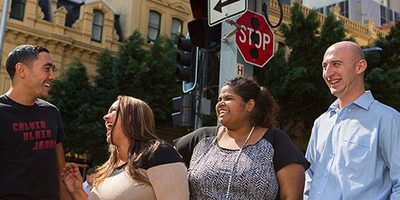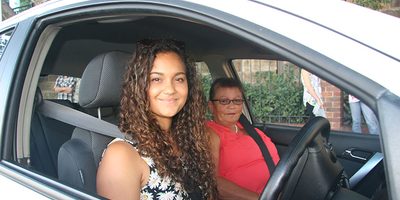
Researcher Jake Byrne is helping drive change
Jake began his Masters of Public Health at the University of Sydney in 2012. Aside from Injury prevention, he is also interested in suicide prevention, social and emotional wellbeing and other areas such as violence prevention. We asked him why helping young licensed drivers is so important and what motivates his research.
What does your research involve?
I am one of the leading hands on the Driving Change program which works with three Aboriginal communities across NSW to increase the number of young licensed drivers by reducing the barriers they face to accessing and maintaining a license.
By increasing young peoples' access to driver licensing we will be increasing their employability and their access to health care services and educational opportunities, as well as having a positive impact on road related offences, individuals' mobility and the issue of social inclusion in these communities.
What impact will this have?
The research component of the project I am working on will evaluate the effectiveness of the unique model of service delivery which we are employing. It is a model that places emphasis on each community having ownership over the solutions and strategies devised to address the problem of low rates of licensed drivers as they experience it.
We hope to show that this is an effective model and that it can be transferred to other communities across the country, not just in NSW. Hopefully it will be taken on in similar incarnations through relevant agencies in other states and territories and this will lead to greater social inclusion and upward mobility for Aboriginal people nationwide.
What inspires you in your research?
Across the entire country Aboriginal people experience worse health outcomes than the rest of the community.
I couldn't feel more strongly that this is not good enough and that it must change. I want to apply myself in areas where I believe I can help change the current state of affairs.
I have a chance to make a difference in the communities that I work with, and to work with leaders in the field of injury prevention. I particularly like that The George Institutes focuses on research translatability ie. whatever programs or research projects are being conducted the goal is to ensure real/measureable changes in disadvantaged communities are made.
What aspects of your work matter the most?
The translation of research is of most importance to me, particularly as an Aboriginal man. Aboriginal communities since colonization have been studied and counted with their stories and information recorded and used for purposes that did not benefit them, in fact, often times through these processes they became further disempowered and disadvantaged.
The George Institute understands the importance of making sure no harm comes from research done in Aboriginal communities and that all the information collected must remain property of the people whose story it tells. The teams working with Aboriginal communities make sure benefits come to the communities they work with in the form of policy and practice change.
That communities are engaged and consulted with in a more than just a tokenistic way is pleasing to see.




